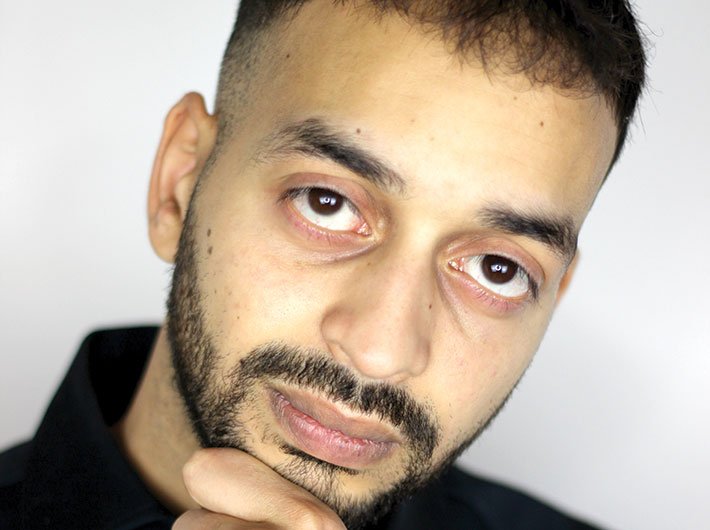Roy is a budding filmmaker and screen writer from Birmingham in the UK. He has written and directed The Thought of You, a short film that won the Royal Stag Barrel Large Shorts ‘Perfect Ten’ at the 19th Jio Mami Mumbai Film Festival in 2017.
The theme of The Thought of You is jealousy and infidelity. Why did you choose this subject?
I was hanging out with Kalki [Koechlin] and others one fine evening after getting off the feature film project Margarita With a Straw. As a newcomer I was enjoying the vibe that night, which Mumbai delivers. I thought this would be wonderful to capture. That’s how the film starts. But having lived life and knowing it all too well I understood that this moment or feeling can’t last forever. So I wandered off to the other extreme and said to myself how can I go from this feeling to the most atrocious thing ever? How can I ruin this moment in the most ultimate way possible whilst still keeping it natural and convincing? What string of events can end this wonderful night with homicide? And I drew the map of the story in my head.
What is the relevance of such a theme in contemporary society?
I come from Birmingham in the UK where couples don’t mix in groups, unlike in Mumbai. So for me, seeing couples mix like they do in Mumbai was different and pleasing. I thought, “This is how it should be.” But as I became more familiar with the scene, I realised the lines were sometimes getting blurred and feelings were naturally, getting mixed up. And now with social media being such a huge part of socialising, we are constantly peering into one another’s lives, looking outward and wanting more as opposed to being content with what we have.
You chose to work in India and New York instead of the UK. How open is British film industry to newcomers?
In the UK, there are programmes and campaigns that help new filmmakers with opportunities to shine, but they are very few in comparison to the demand. In India, I felt much more at home making films. Even though I was a foreigner in Mumbai, I wasn’t self-conscious about being ‘the only brown guy in the crew, as I often am in the UK.
Is the format of a short film, say 15 minutes, challenging? Do you think such formats will be the way forward?
Writing short films is more challenging to me than writing features. Features give you all the space and time to develop characters and plot points. With shorts, you somehow have to cram all the elements of a story into a small space and make it all work! But in my opinion, every story idea has a format that suits it. It’s only when you start forcing ideas to ‘fit’ a format that you’re in trouble. I think TV series is the format of the future. It breaks up hours of story into bite sized chunks and the viewer gets to decide how much they want to eat!
How was your experience with the funding campaign for your film?
Raising funds was harder than making the film itself. It was a stressful, unfamiliar and slightly undignified feat. But it was necessary or else there wouldn’t have been a film.
What keeps you busy at present?
I am working with a British-Pakistani friend and peer, Guz Khan, who has launched a comedy series on BBC called Man Like Mobeen. It’s done really well and I am hoping to have more hand in its season two.
Your message to aspiring film makers...
Take your time and do your best!
As told to Geetanjali Minhas
(The interview appears in the February 28, 2018 issue)

